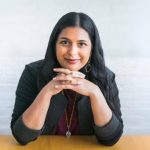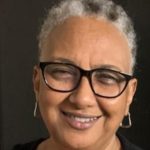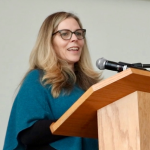- Home
- ‘Forgotten’ Crises and Implications for Women, Peace, and Security
‘Forgotten’ Crises and Implications for Women, Peace, and Security

Event Date: November 14, 2025 - 10:00am to 1:00pm
Location: FSS 4004 and online, 120 University Private, University of Ottawa
Presented by CIPS, the Gender, Peace and Development Research Network (GPD-RN), the Research Network on Women, Peace and Security (WPS), the Women, Peace and Security Network – Canada (WPSN-C), the Canadian Civil Society Working Group on Sudan and Inter Pares
This event brings together a panel of activists, practitioners and researchers who will reflect on several ‘forgotten’ crises and the implications of these crises for women, peace and security (WPS). Many countries around the world are embroiled in conflicts and crises resulting in prolonged and extensive human suffering, yet get little attention and support on the global stage including Sudan, Ethiopia, the Democratic Republic of the Congo (DRC), Yemen, Afghanistan, and others. We recognize that these crises are not entirely forgotten since many continue to advocate for solutions and support. The metaphor of ‘forgotten crises’ reminds us of the limited – and insufficient – attention these crises receive across media outlets and policy-making centres. Panelists will share: background information on these ongoing crises (including wars, conflicts, and humanitarian crises); reflections on why these crises get so little attention; insights into the specific impacts of these crises for achieving commitments to WPS and other human rights agreements; and the advocacy strategies needed to address the gap.
Agenda:
10:00am-10:10 am: Arrival, coffee, muffins & welcome remarks
10:10 am -12:10pm: Panel discussion and Q&A
12:10pm–1:00pm: Lunch (provided)
Panelists:
 Wazhma Frogh is a human rights lawyer and peacebuilding practitioner with over 25 years of frontline and policy-level experience advancing gender equality, community resilience, and inclusive peace in Afghanistan and globally. She is the founder of Women & Peace Studies Organization (WPSO-Afghanistan), which leads a network of over 200 women peacebuilders across Afghanistan – supporting local mediation efforts, conflict resolution, and women’s engagement in community peace processes.
Wazhma Frogh is a human rights lawyer and peacebuilding practitioner with over 25 years of frontline and policy-level experience advancing gender equality, community resilience, and inclusive peace in Afghanistan and globally. She is the founder of Women & Peace Studies Organization (WPSO-Afghanistan), which leads a network of over 200 women peacebuilders across Afghanistan – supporting local mediation efforts, conflict resolution, and women’s engagement in community peace processes.
 Jo Rodrigues is a trainer, and consultant on women, peace and security, equity, diversity, inclusion, anti-racism, and conflict resolution. She is also a life, career, and leadership coach for humanitarian aid and international development workers. For over 20 years, Jo has worked with government bodies, UN agencies, humanitarian aid and international development organizations, and the private sector to empower people with the tools they need to make impactful, positive changes. You can learn more about Jo and her work at jorodrigues.net.
Jo Rodrigues is a trainer, and consultant on women, peace and security, equity, diversity, inclusion, anti-racism, and conflict resolution. She is also a life, career, and leadership coach for humanitarian aid and international development workers. For over 20 years, Jo has worked with government bodies, UN agencies, humanitarian aid and international development organizations, and the private sector to empower people with the tools they need to make impactful, positive changes. You can learn more about Jo and her work at jorodrigues.net.
 Hilary Homes is a long-time human rights activist who currently works for Amnesty International Canada as a crisis and tactical campaigner. As a young leader, they developed youth participation and leadership development programs at the national and international level before shifting to strategic campaigning. Over the years they have focused on a wide range of thematic and country-based files including children affected by armed conflict, the arms trade, international justice, the human rights impact of national security measures, and mass surveillance.
Hilary Homes is a long-time human rights activist who currently works for Amnesty International Canada as a crisis and tactical campaigner. As a young leader, they developed youth participation and leadership development programs at the national and international level before shifting to strategic campaigning. Over the years they have focused on a wide range of thematic and country-based files including children affected by armed conflict, the arms trade, international justice, the human rights impact of national security measures, and mass surveillance.
 Sarah Anderson is the Senior Gender Equality Advisor with Save the Children Canada where she has worked for six years. Sarah manages a team of brilliant Gender Equality Advisors and is responsible for the organization’s gender equality portfolio and strategic initiatives. Sarah holds a Master’s Degree in Adult Education and Community Development (with a focus in global health and women’s rights) from the University of Toronto. Sarah has over 15 years of experience working in the international development industry, including with local and international feminist or women and girls’ rights organizations in different parts of Canada, Africa, and Asia. Sarah is based in Ottawa.
Sarah Anderson is the Senior Gender Equality Advisor with Save the Children Canada where she has worked for six years. Sarah manages a team of brilliant Gender Equality Advisors and is responsible for the organization’s gender equality portfolio and strategic initiatives. Sarah holds a Master’s Degree in Adult Education and Community Development (with a focus in global health and women’s rights) from the University of Toronto. Sarah has over 15 years of experience working in the international development industry, including with local and international feminist or women and girls’ rights organizations in different parts of Canada, Africa, and Asia. Sarah is based in Ottawa.
 Lindsay Forslund is a gender equality and peacebuilding specialist, with experience working on women’s political participation in peace processes, democratic governance, security and stabilization. Her work experience includes United Nations peacekeeping missions in Africa, where she focused on protection of civilians, stabilization and peacebuilding including through local peace-talks and medication efforts. The United Nation’s Development Programme’s, Bureau for Development Policy, where she developed global policies and programming for women’s political participation in conflict and crisis effected regions. She has also worked for International Non-Profit Organizations on gender sensitive peacebuilding and inclusion, including Search for Common Ground, during the 2011 presidential elections in Liberia. She has worked for the United Nations Secretariat at headquarters in New York since 2019, firstly as a Policy Advisor in the Office of the Special Representative of the Secretary General on Conflict Related Sexual Violence, and currently as the Deputy Coordinator for the UN Action against Sexual Violence in Conflict, which is a network of 27 UN entities, united with the goal of ending sexual violence during the wake of war and ensuring the meaningful participation of women in peacebuilding.
Lindsay Forslund is a gender equality and peacebuilding specialist, with experience working on women’s political participation in peace processes, democratic governance, security and stabilization. Her work experience includes United Nations peacekeeping missions in Africa, where she focused on protection of civilians, stabilization and peacebuilding including through local peace-talks and medication efforts. The United Nation’s Development Programme’s, Bureau for Development Policy, where she developed global policies and programming for women’s political participation in conflict and crisis effected regions. She has also worked for International Non-Profit Organizations on gender sensitive peacebuilding and inclusion, including Search for Common Ground, during the 2011 presidential elections in Liberia. She has worked for the United Nations Secretariat at headquarters in New York since 2019, firstly as a Policy Advisor in the Office of the Special Representative of the Secretary General on Conflict Related Sexual Violence, and currently as the Deputy Coordinator for the UN Action against Sexual Violence in Conflict, which is a network of 27 UN entities, united with the goal of ending sexual violence during the wake of war and ensuring the meaningful participation of women in peacebuilding.
 Fahima Hashim is a highly qualified Sudanese feminist leader and gender expert with over 25 years of professional experience. She’s one of the founders of Salmmah Women’s Resource Centre. She has bachelor’s in psychology and master’s degree in library and Archival Studies, Fahima’s professional experience includes over two decades of leading training workshops, campaigns, and research and feminist archive focused on feminist movement building in Sudan. Her contributions to Sudan included working on projects addressing feminist transformative leadership, women’s rights, women peace and security, and violence against women. Fahima’s work integrates feminist holistic protection, intersectionality and gender analysis, which she employs in policy development, movement building, knowledge production and the dismantling of patriarchy. Her ability to connect with and mentor different generations of feminist activists and women underscores her commitment to advancing gender equality and women’s empowerment. During the war she continued working online providing trainings, dialogues and documentation, she trained 100 young feminists in Sudan, Egypt, Uganda and Kenya.
Fahima Hashim is a highly qualified Sudanese feminist leader and gender expert with over 25 years of professional experience. She’s one of the founders of Salmmah Women’s Resource Centre. She has bachelor’s in psychology and master’s degree in library and Archival Studies, Fahima’s professional experience includes over two decades of leading training workshops, campaigns, and research and feminist archive focused on feminist movement building in Sudan. Her contributions to Sudan included working on projects addressing feminist transformative leadership, women’s rights, women peace and security, and violence against women. Fahima’s work integrates feminist holistic protection, intersectionality and gender analysis, which she employs in policy development, movement building, knowledge production and the dismantling of patriarchy. Her ability to connect with and mentor different generations of feminist activists and women underscores her commitment to advancing gender equality and women’s empowerment. During the war she continued working online providing trainings, dialogues and documentation, she trained 100 young feminists in Sudan, Egypt, Uganda and Kenya.
Moderator:
 Rebecca Tiessen is a Professor in the School of International Development and Global Studies at the University of Ottawa. She is also the co-Director of the Gender, Peace and Development Research Network (uOttawa) and co-Director of the Research Network on Women, Peace and Security.
Rebecca Tiessen is a Professor in the School of International Development and Global Studies at the University of Ottawa. She is also the co-Director of the Gender, Peace and Development Research Network (uOttawa) and co-Director of the Research Network on Women, Peace and Security.
Social Sciences Building
Subscribe to the CIPS Newsletter
No spam, only authentic content.






